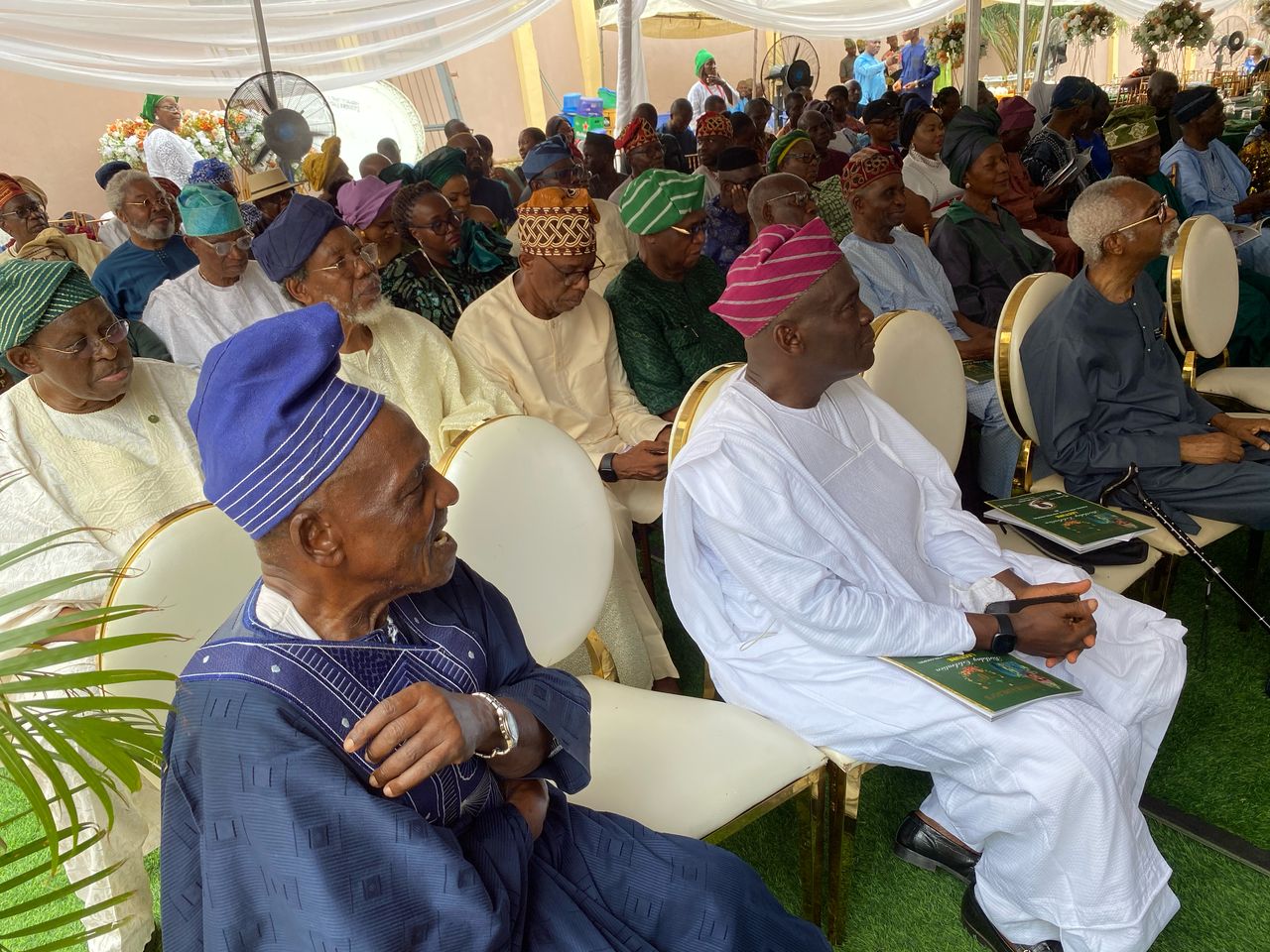 Professor Toyin Falola, a globally renowned historian and distinguished scholar, has called for a revival of indigenous African philosophies to address the persistent struggles of power, leadership, and economic inequality in modern societies.
Professor Toyin Falola, a globally renowned historian and distinguished scholar, has called for a revival of indigenous African philosophies to address the persistent struggles of power, leadership, and economic inequality in modern societies.
Speaking at a public lecture in honour of Professor Femi Badejo’s 70th birthday on Saturday, Falola delivered a thought-provoking speech titled Power, Privilege, and Philosophy at UNILAG Estate, Lagos.
He argued that traditional African wisdom offers ethical and sustainable solutions to governance failures and social injustices, particularly in an era where power is often wielded for personal gain rather than collective progress.
Falola, the Jacob and Frances Sanger Mossiker Chair in the Humanities at the University of Texas at Austin, is widely regarded as one of the most influential African historians of his generation.
“Our ancestors understood that power is not about domination, but about service,” Falola stated. “Ubuntu teaches us that leadership must be rooted in collective well-being rather than self-interest.”
He emphasized that the Western emphasis on individualism has contributed to rising inequality and social fragmentation, whereas African traditions stress interdependence and shared responsibility.
Falola explored historical African governance models, drawing on Julius Nyerere’s Ujamaa and Kwame Nkrumah’s pan-African vision. He pointed out that African socialism was not merely an ideological alternative to capitalism but a system grounded in communal welfare, participatory decision-making, and equitable resource distribution. “We are not without answers to our problems,” he asserted.
“We only need to rediscover our indigenous philosophies and apply them in ways that serve our people today.”
The scholar also referenced postcolonial thinkers like Frantz Fanon and Achille Mbembe, who critiqued the lingering impact of colonialism on African political and economic structures. He argued that “Africa’s convoluted history of power and privilege is defined by conflicts, shifting beliefs, and an ongoing quest for justice.”
He explained that pre-colonial African societies viewed power as a collective trust, not a personal entitlement, and that this perspective remains crucial for addressing present governance challenges.
Expanding on the ethical dimensions of power, Falola remarked: “The central point established in this paper is that those in positions of power can misuse their power when they lack a sense of responsibility.
Colonialism brought cruelty to Africa and established an oppressive system of control that still influences the continent’s politics and economy today. African intellectuals have always responded with great energy, striving to redefine societal power.”
He further noted that before colonial rule, African governance reflected the collective decisions of the people, and that these ideas remain highly relevant today.
He emphasized that “true power lies in respect and support for everyone’s dignity, not in money or fame.” He challenged modern societies to see wealth not as a means of exclusion but as a tool for collective progress.
According to Falola, Ubuntu provides a counterbalance to corporate-driven globalisation, promoting interdependence and shared responsibility.
He stressed that:
“Justice is not just an idea but something we can actively promote in our daily lives. Wealth can be used to help those in need, and power can be a force for good.”
He also underscored the influence of African philosophies beyond the continent, stating that movements for social justice, independence, and equality worldwide have drawn inspiration from African traditions.
“While Pan-Africanism promotes uniting people with African heritage, the anti-apartheid movement stresses reconciliation and forgiveness,” he said. “These ideas have inspired thinkers and activists globally and must be included in international discussions on governance, sustainable development, and justice.”
Falola called for deliberate efforts to integrate African perspectives into policy-making, education, and international discourse, warning that dominant Western narratives continue to marginalise African contributions to knowledge and power.
“Using African theory to analyse power and privilege is not merely a theoretical exercise—it is a call to action,” he asserted.
He urged governments, scholars, and policymakers to “create policies that benefit many individuals instead of serving only a few” and to champion values.
Falola stressed that African intellectual traditions must be central to shaping future goals, arguing that they hold vital insights for building a more just and equitable world.



